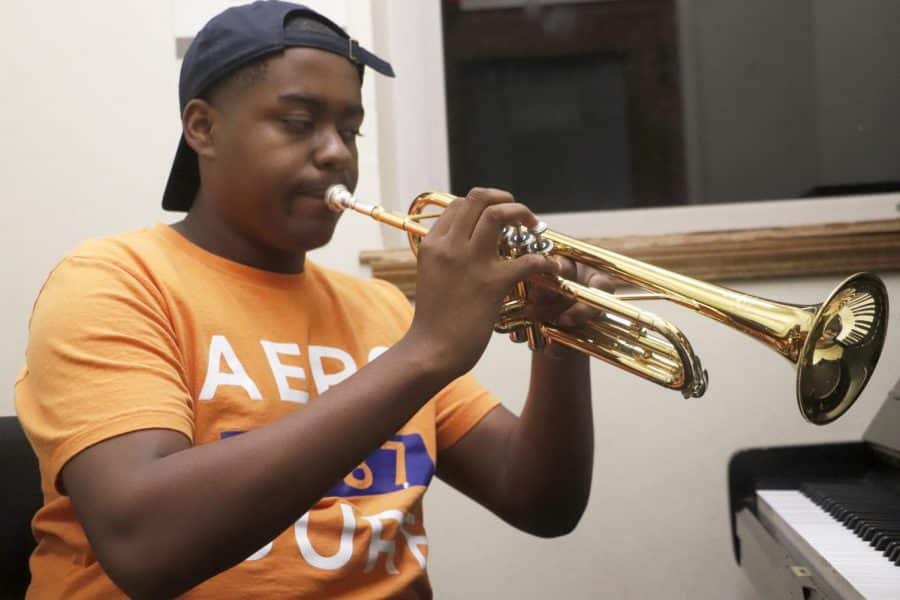Embarking on a journey to pursue a bachelor of music degree can be an exciting prospect for aspiring musicians. But it’s also a path filled with choices. Among them are the types of music degrees to pursue. The three primary types of university degrees in music are:
- Bachelor of Arts in Music (BA)
- Bachelor of Music (BM)
- Bachelor of Science in Music (BS)
Each type caters to a distinct set of interests and career goals, with varying course requirements and degree structures. Let’s explore each in detail.
Table of contents
Understanding the Basics of Music Degrees
Bachelor of Arts in Music (BA)
The BA in Music is a broad-based degree that combines music studies with a strong liberal arts component. This degree emphasizes the academic study of music, including music theory, musicology, and music history. It is a versatile option that allows students to explore other areas of interest outside of music.
Usually, universities that emphasize a well-rounded education offer this degree. BA in Music students might be musicians who want to keep their options open for careers in various fields or those considering double majoring.
Bachelor of Music (BM)
The BM degree, on the other hand, is a professional degree that focuses intensively on music performance and related areas. This degree requires a high level of proficiency in an instrument or voice and includes more performance opportunities. Music conservatories and universities with strong music departments typically offer a BM.
BM programs are for students who plan to make performance their career or who wish to prepare for graduate studies in music. This degree emphasizes developing technical skills, musical understanding, and aesthetic appreciation.
Bachelor of Science in Music (BS)
The BS in Music stands as a specialized program often associated with music business, music technology, music therapy, or music production. This degree tends to have a more technical or scientific orientation, focusing on practical skills. Typically, a school does not expect the student to have a strong background in making music.
Universities often offer BS in music programs with strong connections to the music industry. They are particularly suitable for students interested in music’s technical or business aspects.

The Key Differences in Music Degrees
Coursework and Core Subjects
While all three degrees involve the study of music, they differ significantly in the scope and focus of their coursework.
BA in Music: This degree offers a wide range of music and non-music electives. It allows students to tailor their education to their interests. The core music courses cover music theory, composition, and music history. BA students also take liberal arts subjects such as humanities, literature, social sciences, communications, and a foreign language.
BM in Music: This degree typically requires more credits due to its focus on performance and professional training. The core curriculum involves intense study in applied music, music theory, aural skills, and music history. BM students also participate in ensembles and present recitals.
BS in Music: This degree offers specialized programs such as music business, production, or technology. The core curriculum varies depending on the focus area but includes specific courses related to the specialization. The student has limited music theory, history, and applied music coursework.
Career Paths and Further Education
The type of degree you choose can also influence your career path and further education options.
BA in Music: This degree offers flexibility, making it ideal for those pursuing careers outside of music or considering double majoring. Graduates can work in various sectors, such as arts administration, music business, or media. They can also pursue graduate studies in different fields.
BM in Music: This degree prepares students for careers in music performance or for advanced studies in music. Graduates often work as professional musicians or music teachers. They may also pursue master’s or doctoral degrees in music.
BS in Music: This degree is suitable for those wishing to work in the technical or business aspects of music, like music production, sound design, or artist management. Graduates can also pursue advanced studies in music technology or music business.
Choosing the Right Music Degree for You
Choosing the right bachelor of music degree depends on your interests, career goals, and educational preferences. Here are some points to consider:
- Your Career Goal: A BM might be best if you aspire to be a professional performer or pursue graduate studies in music. Choose a BA if you’re interested in music but also want to keep your options open for other fields. If you’re drawn to the technical or business side of music, a BS would be a suitable option.
- Your Academic Interests: A BA would be a good choice if you enjoy a broad-based education and would like to study various subjects alongside music. If you prefer a more intense, focused study of music, consider a BM. A BS could be an ideal fit if you’re interested in combining music with science or technology.
- Your Future Study Plans: If you wish to pursue advanced studies in music, a BM will prepare you well. A BA might provide a more flexible foundation if you consider graduate studies in a different field. A BS would be a good choice if you’re interested in advanced studies in music technology or music business.
Remember, the right degree for you is the one that aligns with your personal interests and career goals. Research the programs thoroughly, visit the campuses, and consult with advisors or professionals in the field to make an informed decision.
The Bottom Line
Selecting a degree program is a significant decision that can shape your future career and personal growth. While the BA, BM, and BS degrees share a common focus on music, they cater to different interests and objectives. Understanding these differences can help you make an informed choice, setting the stage for a fulfilling journey in music.
Whether you aim to be a professional performer, a music educator, a sound engineer, a music business professional, or a music therapist, the right degree program can equip you with the necessary skills and knowledge for your chosen path. Remember, your passion for music and commitment to improvement will drive your success, whatever degree you choose.
FAQ on Music Degrees
What subject areas make up a typical music curriculum?
Core music courses in most music degrees include music theory, music history, ensemble performance, private instrumental or vocal lessons, music technology, composition, conducting, and music education methods courses for future teachers. Academic electives in the arts and sciences are also usually required.
What jobs can I pursue with a bachelor’s or master’s in music?
Common careers with a bachelor’s include being a full-time performer, private music teacher, high school band/choir director, freelance composer/arranger, worship leader, or working in arts administration, marketing, publishing or production. With a master’s or doctorate you can be a college professor, music scholar, professional ensemble player, or advanced conductor, composer, or music educator.
What benefits come from getting a music degree?
Benefits include advanced performance training through lessons and ensembles, a broad knowledge of music theory, history, literature, and techniques, exposure to a variety of musical styles, careers, and tools, opportunities to collaborate on musical projects, and immersive mentoring to help turn your musical passions into a career.
Doctor Fish Says
Need help figuring out what’s the best music degree for you? I’ve helped college-bound musicians win acceptance at top music schools pursuing all types of degrees. The College Music Major team and I can help you too. Here are the services we offer. Let’s connect!
Related Posts
For More Info on Music Degrees
Check out these helpful sources:
- https://www.forbes.com/advisor/education/bachelors-in-music/
- https://www.forbes.com/advisor/education/types-of-music-degrees/
Let's Connect!
Interested in CMMaj helping you (or your child) discover best-fit music schools and apply/audition for them successfully? We'd be happy to chat with you. Just fill in the form below, and we'll get back to you as soon as possible.

About the Author

Dr. David Lee Fish
Dr. David Lee Fish, Ph.D. is the founder of College Music Major. A veteran figure in music and education whose extensive career spans decades, he's known for his unique approach to music and for sharing his passion with others. His expertise ranges from performance and songwriting to education and private consulting.

